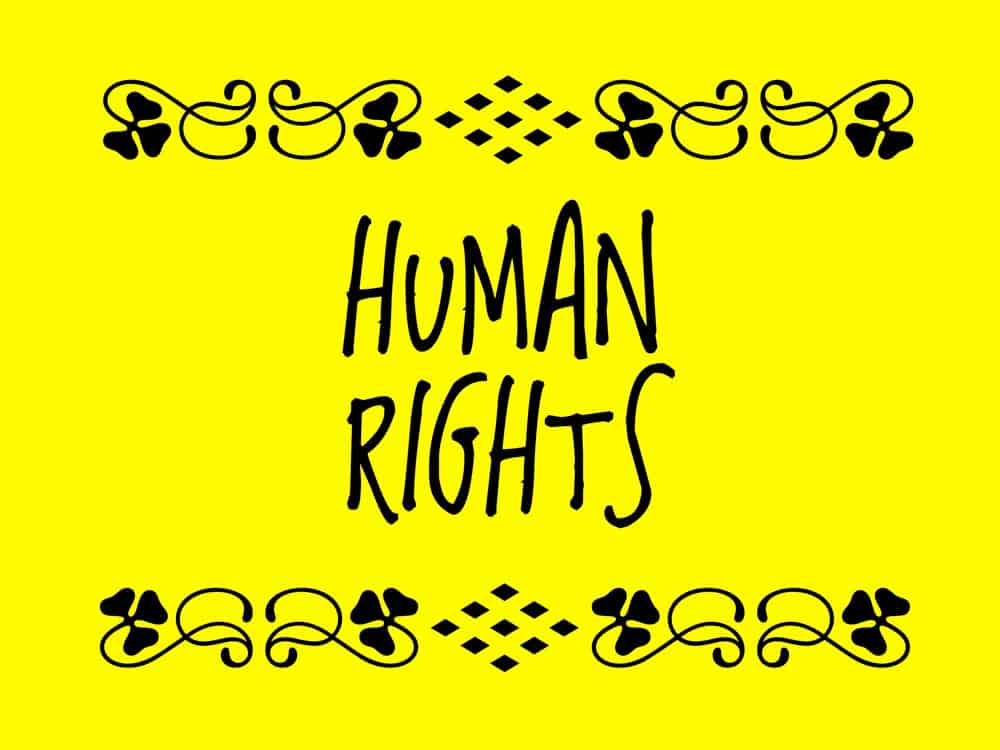By Sana Khan, commercial contracts attorney at Arista Networks
Part four of Sana Khan’s seven-part CSR series discusses how organisations can do their bit to boost human rights – helping employees and the company in the process.
Turn on the TV, listen to the radio or open a newspaper and you are bound to see a human rights breach or atrocity occurring, whether locally or internationally, in which vast numbers of people are suffering. This is where your organisation can make a difference.
Organisations have responsibilities to respect human rights. These core rights include privacy, health, life, liberty and security, as well as an adequate standard of living.
Organisations fail to realise that there are many little things that they enforce, like the above, that are clearly actions of social responsibility – and if they can repackage and combine all their efforts, this in itself can enable them to lay out and promote their CSR initiatives to the world at large.
Beyond these minimum requirements, organisations can implement CSR initiatives that focus on positive contributions to support human rights. For example, CSR initiatives can centre around ensuring diverse and inclusive workplaces in all of an organisation’s offices, invest in communities and public policy advocacy, and engage employees and communities in order to promote collective action.
POSITIONS OF POWER
Human rights issues are especially important for large organisations, and it is prudent that they take active involvement in improving human rights. This is because many external parties blame larger organisations for unequal economic growth through globalisation, whereby developing and underdeveloped countries are often taken advantage of by large corporations – especially in cases where human rights breaches occur.
Many stakeholders see this as a by-product of all the wrongdoings that larger organisations have done in the past in order to get them to positions of power and authority nationally and internationally.
Furthermore, there is an emerging trend to require large organisations, especially those that are publicly listed, to do a transparent form of business. This can be seen in the EU Directive on Non-Financial Reporting. Thus, taking an active role in human rights issues within your large organisation is seen as requirement to help maintain and grow your organisation’s reputation for reliability.
GOOD CSR STARTS AT HOME
It is important to note that creating a CSR policy based on human rights issues does not mean focusing on external human rights issues, but recognises that your organisation must first be in a position to show that it complies with the human rights issues affecting its internal stakeholders. Otherwise your CSR policy will attract strong criticism, which can have a devastating impact on the reputation and commercial viability of your organisation.
With this in mind, regarding internal human rights issues organisations need to introduce an efficient anti-discrimination policy, ensure that adequate health and safety policies are in place, provide employees with adequate wages, have efficient human resources polices, have a diverse employee ratio to highlight that the organisation does not discriminate in any form against its employees and is an equal opportunities employer; provide a fair holiday, maternity, sick leave, healthcare, insurance and pension offering to employees; and ensure the privacy and data protection of all personal data and sensitive data.
Human rights issues are especially important for large organisations, and it is prudent that they take active involvement in improving human rights
Larger organisations often have bases in developing and underdeveloped countries, or are associated with them in some way. One CSR initiative that will have a widespread impact is to ensure that your organisation prevents child labour within your organisation, or within any outsourced or partner business with which your organisation has relationship.
CREATING AN ETHOS
There is a vast array of human rights-related issues that your organisation can introduce as a CSR initiative, but it is important to ensure that all polices are adequately and clearly laid out and implemented. This in itself will take time to draft and implement. However, if done properly you will be able to spend time more on implementing and promoting the initiatives themselves.
This helps internal and external stakeholders, and also promotes your reputation for being an ethical business – hence making your company more commercially viable.
Furthermore, it will also reduce legal and commercial risk, as you can adequately address any complaints by producing your policies and procedures to be examined, highlighting all the approaches you have taken to ensure that human rights matters are met within and outside your organisation (that is, if you have a CSR initiative that focuses on promotion, and/or CSR initiatives based on human rights matters relating to external stakeholders).
An examination of Tesla Motors’ CSR and human rights-based polices – for example, its conflict minerals policy – is a perfect way to see how a large organisation focuses on human rights and markets its policies in an cost-efficient manner. This ensures maximum commercial benefit, and also maximum attention to the CSR and human rights issues it has taken an active interest in.
Part one: Thinking about CSR in a new light
Part two: Building a community around your business with CSR
Part three: CSR, the environment and your business
Part five: Crowdsourcing your CSR ideas
Part six: Bringing technology to places that need it most
Part seven: CSR, entrepreneurship and medical aid
Photo (above): Ron Mader
About the blogger
 Irish barrister Sana Khan is commercial contracts attorney at Arista Networks, education programme director for the Irish Chapter of Association of Certified Anti-Money Laundering Specialists (ACAMS) and a lecturer on corporate governance at Griffith College Dublin.
Irish barrister Sana Khan is commercial contracts attorney at Arista Networks, education programme director for the Irish Chapter of Association of Certified Anti-Money Laundering Specialists (ACAMS) and a lecturer on corporate governance at Griffith College Dublin.
She provides innovative CSR initiatives that can be implemented by large organisations and has released an ebook on the subject matter of Business Social Responsibility: CSR for SMEs.
Sana can be reached by email with any queries.



